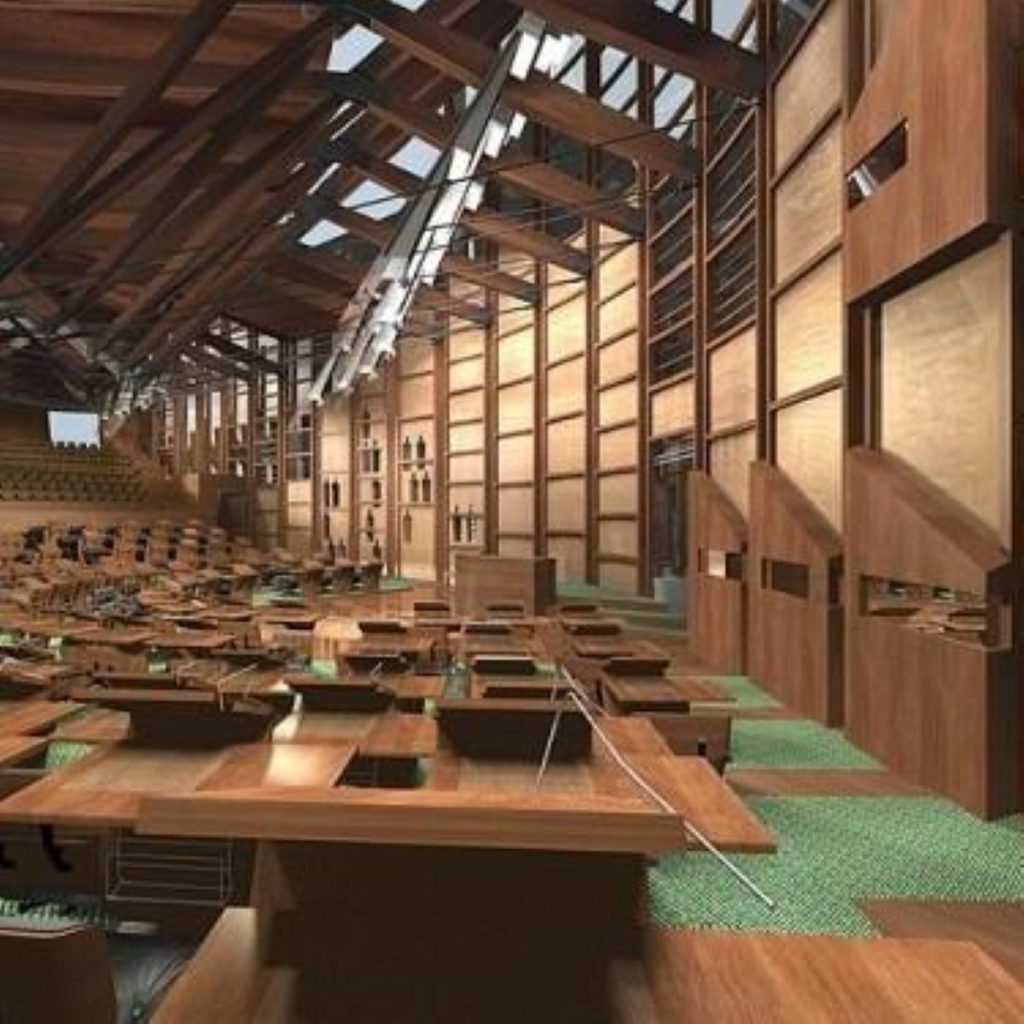Nationalists takes largest slice of Holyrood
Labour has “lost its moral authority” to govern Scotland, the SNP claimed today as it won the largest number of seats in the Scottish parliament.
However, Labour showed no signs of conceding defeat and indicated they would seek to form a coalition government.
First minister Jack McConnell insisted the results are “very, very close” and all Scottish politicians now have a “responsibility to reflect on the result and keep all options open”.
He called on his fellow politicians to “consider what is best for the future of Scotland.”


His comments followed the SNP Alex Salmond’s own statement, which boldly preceded the final count, that Labour had “lost” the election and had no “moral authority” to form a government in the Scottish executive.
Moreover, he claimed the political landscape in Scotland had intractably changed and Labour had lost its “divine right” to rule Scotland.
129 of 129 seats declared
| Party | Constituency | Regional | Change (net) | Total |
| SNP | 21 | 26 | 20 | 47 |
| Labour | 37 | 9 | -4 | 46 |
| Cons | 4 | 13 | -1 | 17 |
| LibDems | 11 | 5 | -1 | 16 |
| Others | 0 | 3 | -14 | 3 |
Source:BBC
The SNP won 20 seats to emerge with 47 seats to Labour’s 46.
Mr McConnell claimed the “collapse” of the smaller parties and independents had boosted the SNP. Labour lost just four seats overall, while ‘others’ lost 14 to keep just three seats.
The Conservatives and Liberal Democrats took 17 and 16 seats respectively, after both losing one.
Mr Salmond’s claim Labour have lost the “moral authority” may not convince Mr McConnell as he attempts to form a coalition.
In the constituencies, despite a 9.1 per cent swing to the SNP, only 0.7 per cent of the vote divides the two main parties. In the regions, 1.8 per cent divides the SNP and Labour.
The government will be hoping Mr Salmond is not appointed first minister, and thereby avoiding a clash of power between Westminster and Holyrood.
With 16 seats, the Liberal Democrats are the most likely target as the two leaders look towards a coalition government. Leader Nicol Stephen had said the party with the largest number of seats had the “moral authority” to govern.
Moreover, the Liberal Democrats remain fiercely opposed to the SNP’s commitment to independence and have said this will prevent them forming a coalition.
Leader Sir Menzies Campbell ruled out a coalition with the SNP if they insisted on holding a referendum. “Absolutely not,” he told the BBC. “We are against independence, that’s our position and it ain’t going to change.”
The SNP’s gains were overshadowed by the 100,000 ballot papers rejected, seemingly because voters failed to understand the complicated electoral process.
The Electoral Commission has already launched a review into the process, after it became apparent that the number of spoiled ballot papers exceeded the majorities in some constituencies.
The inadvertent disenfranchisement of 100,000 Scots had “offended” every democrat, the SNP leader said. He announced that, if appointed first minister, one of his first tasks would be a “rigorous and robust” independent review.












